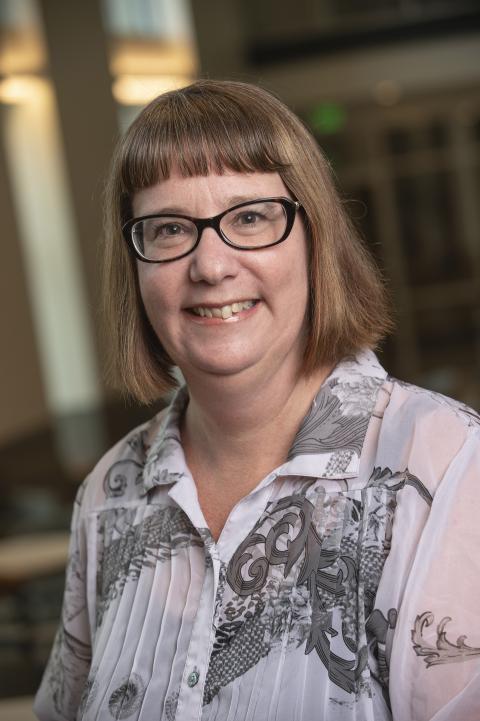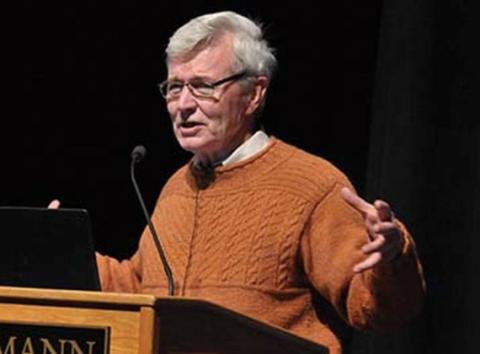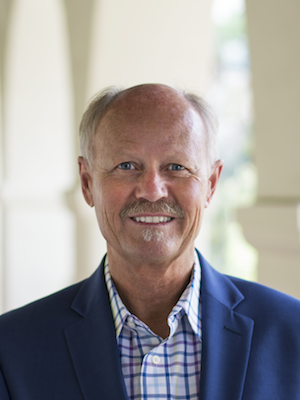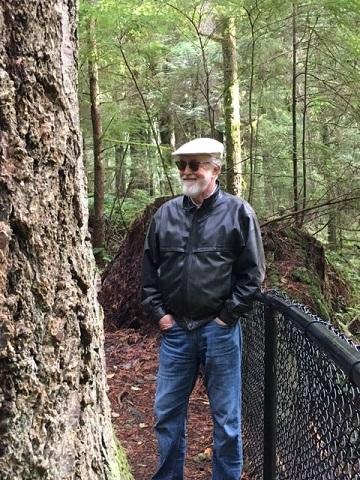Contextualizing and Reframing the Opioid Crisis in New Hampshire
Interdisciplinary Perspectives on Policy, Practice, and Discourse
Fall 2018
Conceptualizing the Problem
Thursday, September 13
5:30 p.m., MUB Theatre II
Why New Hampshire? The Opioid Crisis in Context
Panel Discussion:

Karen Van Gundy, Ph.D., Department of Sociology UNH
Karen T. Van Gundy is professor of Sociology, core faculty in Justice Studies, and a faculty fellow at the Casey School of Public Policy at the University of New Hampshire. Funded by the National Science Foundation and the New Hampshire Charitable Foundation, her research examines how social contexts shape physical, emotional, and behavioral health among rural and urban youth and emerging adults. Her work appears in scholarly journals such as the Journal of Health and Social Behavior, Rural Sociology, and Substance Use and Misuse, as well as her recently published book, Marijuana: Examining the Facts.

Dr. Thomas Sherman, M.D., NH Medical Society
Licensed in both New Hampshire and Massachusetts, Thomas Sherman has been practicing medicine for over 30 years as a Board Certified Gastroenterologist. As such, he has been recognized with numerous awards including a Distinguished Advocacy Award from the American Cancer Society NH Cancer Action Network; The Knowlton Incentive for Excellence Award; the Internal Medicine Award; and the James E. C. Walker Award. In addition, Dr. Sherman has been recognized as a “Top Doctor” by New Hampshire Magazine, U.S. News and World Report, Northern Virginia Magazine, and Washingtonian Magazine. In addition to his distinguished career as a physician, Dr. Sherman was also elected to the New Hampshire State Legislature as a Representative for Rockingham District 24 where he was appointed to several committees, including the Committee on Health, Human Services, and Elderly Affairs; the Governor’s Advisory Board, New Hampshire Statewide Innovation Model Grant; the Commission to Study Expansion of Medicaid Eligibility to which he was appointed Commissioner by the Speaker of the House. Dr. Sherman was also appointed by the New Hampshire Speaker of the House to a seat on the Joint Task Force for the Response to the Heroin and Opioid Epidemic.

Kevin Irwin, Board of Directors, Hope on the Haven Hill, NH
For the last 25 years Kevin Irwin has been working at the intersections of public health policy, research and practice as a teacher, researcher, trainer, consultant, advocate, program-builder and service provider, always focused on improving the health and wellbeing of vulnerable populations. Throughout his career he has worked closely with people who use opioids and the programs that serve them. This work included early efforts to integrate substance use and mental health treatment, expanding access to quality medication-assisted recovery, building and supporting syringe services programs and community-based naloxone access across the US and overseas, primarily in the Russian Federation, India and Brazil. After working as a substance use counselor Kevin served as a Research Associate in the Yale University School of Public Health, as faculty of the Community Health Program at Tufts University, and as Senior Program Manager for the Corporation for Supportive Housing. He currently serves as the Director of Operations for the Region Six Integrated Delivery Network (IDN), a Medicaid Waiver program aimed at building capacity and new models of care to integrate behavioral health, primary care and social services. In New Hampshire, Kevin has been privileged to serve on the Governor’s Commission on Alcohol, Drug Abuse Prevention, Treatment and Recovery; Chair of the Board of Directors at Hope on Haven Hill; Chair of the NH Harm Reduction Coalition; Commissioner for the Dover Housing Authority; member of the Steering Committee of the Greater Seacoast Coalition to End Homelessness; and former Chair of the Advisory Board for SOS Recovery Community Organization.

Kerry Nolte, Ph.D., FNP-C, Nursing, UNH (moderator)
Kerry Nolte is an assistant professor of nursing at the University of New Hampshire and a Family Nurse Practitioner. Her research interests focus on communication and harm reduction. Her clinical background is as a Family Nurse Practitioner at a Federally Qualified Community Health Center. In her clinical work, Kerry is particularly concerned with engagement in care and supporting people who use drugs. Kerry is a founding member of the New Hampshire Harm Reduction Coalition that has established a syringe service program to support people who use drugs in the Seacoast area.
Thursday, October 11
5:30 p.m., MUB Theatre II
Re-framing the Opioid Crisis in Historical Perspective
Bruce K. Alexander, Ph.D., Professor Emeritus, Simon Fraser University
Presenter:

Bruce Alexander has explored many corners of the addiction field for almost half a century. Beginning in 1970, he has counselled hard-core heroin addicts in Vancouver’s darkest streets and prisons; conducted psychopharmacological research (the “Rat Park” experiments); conducted field research on cocaine use for the World Health Organization; critically analysed theories of addiction by ancient philosophers and modern researchers; interviewed university students about their diverse addictions, investigated the “temperance mentality” through questionnaire research in several countries, served on the Boards of Directors of NGOs in Vancouver’s Downtown Eastside.
He has published three books, Peaceful Measures: Canada’s Way Out of the War on Drugs (University of Toronto Press, 1990), The Globalization of Addiction: A Study in Poverty of the Spirit (Oxford University Press, 2008), and A History of Psychology in Western Civilization (Cambridge University Press, 2015, co-author Curt Shelton). Since retiring from the university as Professor Emeritus in 2005, Alexander has spoken frequently in Canada, Europe, and the United States. He posts many of his recent speeches on his website, brucekalexander.com. He was awarded the Sterling Prize for Controversy in 2007.
Thursday, October 25
5:30 p.m., Murkland 115
Pain, Misuse, and Abuse:
Exposing Communication Practices Driving the Opioid Epidemic
Wayne Beach, Ph.D., School of Communication, San Diego State University
Presenter:

Dr. Beach is Professor in the School of Communication at San Diego State University and Director of the Center for Communication, Health, & the Public Good. He is also faculty on the SDSU/UCSD Joint Doctoral Program in Public Health, Adjunct Professor, Department of Surgery, and Member of the Moores Cancer Center, University of California, San Diego (UCSD). He has promoted Conversation Analysis (CA) across the communication discipline and social/medical sciences, drawing attention to the fundamental importance of studying the organization of everyday talk and social actions in ordinary conversations and diverse institutional interactions. A particular concern with health and illness has given rise to long-term and current investigations such as how family members talk through cancer on the telephone, patient-doctor interactions during preventive and oncology interviews, and an emerging focus on communication, genetic counseling, and family decision-making about managing uncertain futures and health risks.
Translations of his work for the public good include When Cancer Calls…, a professional theatrical production adapted from naturally occurring phone calls, that has been viewed and experienced by thousands of persons and is currently being developed into an innovative educational resource for the NCAA. A recently completed documentary film, A Journey Through Breast Cancer, has involved a unique collaboration with a patient and her family, an Emmy Award winning film maker, a surgeon, and medical team members within the Comprehensive Breast Health Center at UCSD Moores Cancer Center.
External funding for Dr. Beach’s research has been awarded from the National Institutes of Health (NIH)/National Cancer Institute (NCI), the American Cancer Society (ACS), and several philanthropic foundations in San Diego. Among his many awards are three Outstanding Scholarship and the 2018 Distinguished Scholar awards from the National Communication Association (NCA).
February 19, 2019
5:30 p.m., MUB Theater 1
Towards an Ecological Understanding of Addiction
Darin Weinberg, Ph.D., Department of Sociology, University of Cambridge
Presenter:

Dr. Darin Weinberg received a BA in Sociology and Communications from the University of California, San Diego in 1984; an MSc in Social Philosophy from the London School of Economics in 1985, and a PhD in Sociology from U.C.L.A. in 1998. After teaching for three years at the University of Florida, he joined the Faculty of Social and Political Sciences (now HSPS) as a University Lecturer in 2000. He held a Lindesmith Fellowship for Drug Policy Studies, from the Lindesmith Center of the Open Society Institute in 2000-2001. He has been a Fellow of King's College since 2001, and a Reader in the Department of Sociology since 2012.
In 2011 Darin won the Melvin Pollner Prize in Ethnomethodology from the American Sociological Association's Section on Ethnomethodology and Conversation Analysis for his book Of Others Inside and the Outstanding Article Award from the Social Problems Theory Division of the Society for the Study of Social Problems. In 2018 Darin again won the Melvin Pollner Prize in Ethnomethodology for his book Contemporary Social Constructionism.
March 5, 2019
5:30 p.m., MUB Theater I
Opiophobia vs. Overprescribing: Competing Risks and the Pursuit of Moral Medicine
S. Scott Graham, Ph.D., Department of Rhetoric and Writing, University of Texas at Austin
Presenter:

S. Scott Graham is an assistant professor in the Department of Rhetoric & Writing at the University of Texas at Austin. He is also the developer and curator of conflictmetrics.com, a biomedical research funding visualization initiative. He researches how experts and public stakeholders communicate about risk and uncertainty as part of science-policy decision making. Scott’s recent book, The Politics of Pain Medicine(2015, University of Chicago Press) chronicles three years of ethnographic research and nearly ten years archival research into interdisciplinary pain medicine and related public policy. He explores the resonance between pain science’s efforts to establish an integrated mind/body approach to treating pain and the new materialist movement in science and technology studies.
April 2, 2019
5:30 p.m., MUB Theater II
The Fate of Drug Policy Reform in a Time of Trump
Craig Reinarman, Ph.D., Professor Emeritus, University of California at Santa Cruz
Presenter:

Craig Reinarman is Professor Emeritus of Sociology and Legal Studies at the University of California, Santa Cruz. He was a Post-Doctoral Fellow at the Alcohol Research Group in the School of Public Health at the University of California, Berkeley. He has been a visiting professor at the University of Amsterdam and the University of Utrecht, a visiting scholar at the Center for Drug Research at the University of Amsterdam, and principal investigator on research grants from the National Institute of Drug Abuse and the National Institute of Justice. He has also been a consultant to the World Health Organization’s Substance Abuse Program and a member of the Board of Directors of the College on Problems of Drug Dependence. Dr. Reinarman is the author of American States of Mind (Yale University Press, 1987) and co-author of Cocaine Changes (Temple University Press, 1991) and Crack in America (University of California Press, 1997). His most recent book is a co-edited anthology of critical addiction studies called Expanding Addiction (Routledge 2015).
Sponsored by the UNH Center for the Humanities and the Departments of Sociology and Communication.
The organizers for this year’s series are Karen VanGundy (Department of Sociology), Michelle Gibbons (Department of Communication), Mardi Kidwell (Department of Communication), Donna Perkins (Justice Studies Program), and Edward Reynolds (Department of Communication). The series will bring together collaborators from across the College of Liberal Arts, as well as faculty from outside the college (Carsey School of Public Policy, Nursing) to ask: What can the Liberal Arts bring to the table in addressing the opioid crisis? How can our modes of inquiry, humanistic sensibilities, and ways of understanding and conceptualizing a problem address this particular issue in practical and insightful ways? The organizers’ goal is to use the Sidore series to prompt and guide campus-wide conversations about the opioid crisis that blend the interdisciplinary expertise of UNH faculty with that of national and local scholars, professionals, and stakeholders. In so doing, they seek to reframe New Hampshire’s opioid crisis from one of scandal and corruption to one of serious intellectual and compassionate deliberation.
The Saul O Sidore Memorial Lecture Series was established in 1965 in memory of Saul O Sidore of Manchester, New Hampshire. The purpose of the series is to offer the University community and the state of New Hampshire programs that raise critical and sometimes controversial issues facing our society. The University of New Hampshire Center for the Humanities sponsors the programs.